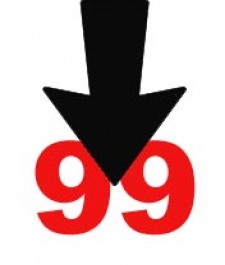Talk to any small iPhone developer and they'll tell you about the meritocracy of the App Store, and how it enables them to compete with the big boys.
Indeed, some publishers have commented that the App Store hasn't been as easy to deal with as they had hoped.
Glu's outgoing CEO Greg Ballard notably said, "It [App Store] hasn't been the home run for big publishers as was expected."
Week-on-week however, 14 months after the App Stores launch, EA Mobile and Gameloft are coming to dominate the market, as they have global mobile game decks.
Since July 2009, they've typically had around 20 games in the US Top 100. This week it's up to 25, with EA Mobile lengthening its lead over its French rival 15 games to 10.
Does Apple care?
Indeed, you could also almost paint Apple into the role of neglectful network operator.
Of course, it doesn't make the demands that mobile operators do concerning content. Other than technical ones, it doesn't really make any demands at all.
In fact, you could argue that just as the mobile operators didn't care about mobile games and so didn't do anything to change the market dynamics - it was massive fragmentation, bad discovery, and high cost of games that led to EA Mobile and Gameloft's domination because they had the licences and the scale - so Apple is similarly doing nothing to change market dynamics by tacitly encouraging the drop to a standard 99c price for non-licenced iPhone games.
It could change the way the chart is constructed so it's based on value of sales not just the number of downloads for example.
99c isn't sustainable
The increasing problem is the 99c games are only type of games open to small developers and hence this is where we're seeing the most congestion in terms of too many releases and hardly any profits unless youre selling hundreds of thousands of games.
Of course, this isn't to say that small developers and publishers can't find success.
A few have, as has been proved by the likes of Chillingo, Backflip Studios, and Skyworks. Significantly though, very few have managed to combine good chart position with an average portfolio price higher than $2.
The only two I can think of are PopCap Games and Firemint; one of which is a specialist licenced-based casual publisher and the other took a big risk on a very technically advanced game (Real Racing).
It's just not a sustainable model for the vast majority of developers or publishers.
The end result will either be that developers will go bust or move onto other platforms where they can charge more for their games, or spread the cost of development.
That's device fragmentation by another name, and we all know where that leads; licenses and big publishers like EA Mobile and Gameloft.
Opinion: Dominated by EA and Gameloft, the App Store is mutating into just another operator deck
Question is, does Apple care?






















